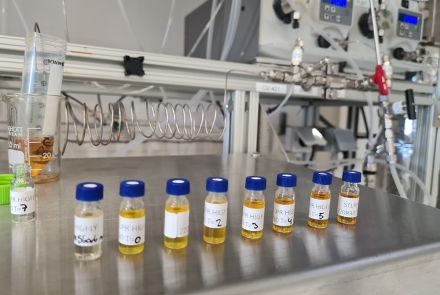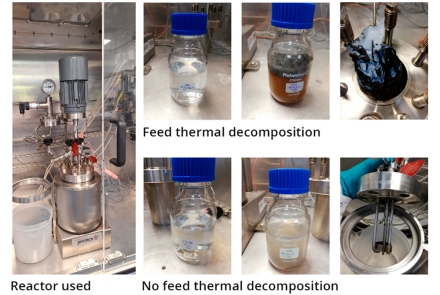Flying high towards a sustainable future with HIGFLY
Europe is on its way to make flying a sustainable means of transportation.
On February 24th, eight partners from academia and industry came together in a virtual meeting that turned the page on achieving a decarbonized transport sector in Europe. Under the coordination of Eindhoven Technical University, within the next 48 months the HIGee to Furanic-based jet Fuel technologY, HIGFLY project will make a sound contribution towards making aviation a greener sector.
Focusing on feedstock flexibility and synergies across the bioenergy sector, the HIGFLY project is set to develop innovative technologies for the production of advanced biofuels from sustainable biomass, such as forestry, agricultural residues and biogenic waste. Together with accelerating EU leadership in the implementation of renewable energy carriers for aviation, HIGFLY promises increased resource efficiency at lower operation costs, drastically reducing carbon emissions.
While the EU is striving to boost technological development in the production of sustainable fuels, the sustained use of HIGFLY’s manufactured combustible could decrease EU’s aviation-based greenhouse gas emission by 20%.
From these premises, the HIGFLY project will contribute to accelerating the commercialization of aircraft green propellants and increase the total share of advanced biofuels in the EU market. In fact, thanks to the collaboration with industrial partners, a prototype is expected ready for scalable industrial production during the next 10 years.
Driven to reach technological developments at industrially-relevant standards, the HIGFLY project will develop robust catalytic materials and sustainable solvents for the renewable energy sector, taking into consideration the complete value chain, from bio feedstock to biofuel.
HIGFLY’s partners plan to achieve all of the above through an intensive early-stage project-based cooperation that will increase solution uptake. Other partners to the project are TNO, SkyNRG, CSIC, Fraunhofer, Johnson Matthey, Heidelberg Institute for Energy and Environmental Research (IFEU), KNEIA and Boeing.
Besides the coordinator TU/e, the HIGFLY consortium brings together the following organizations and companies: TNO, SkyNRG, CSIC, Fraunhofer, Johnson Matthey, Heidelberg Institute for Energy and Environmental Research (IFEU), KNEIA and Boeing.
HIGFLY has received funding from the European Union’s Horizon 2020 research and innovation programme under grant agreement N°101006618.







